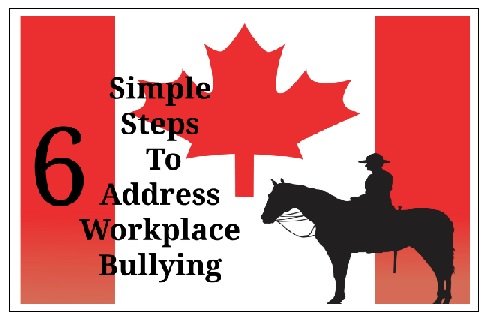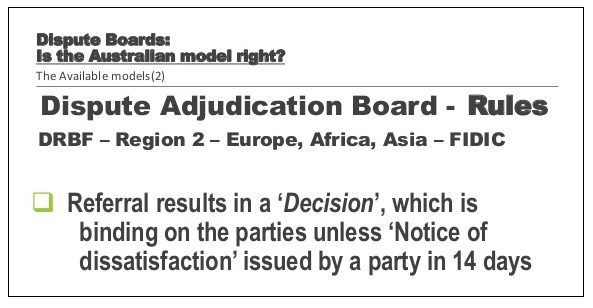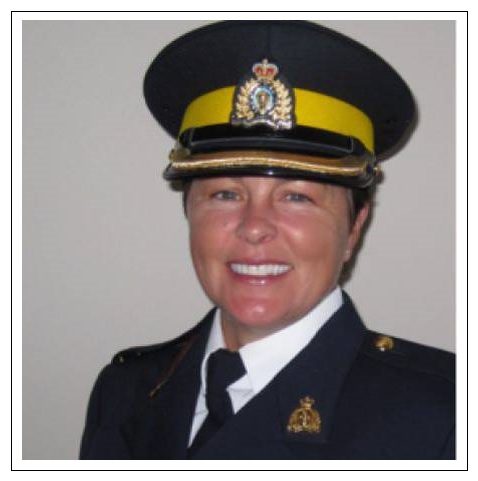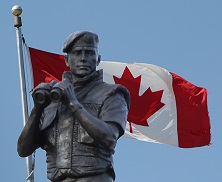True and Fascinating Canadian History

A Mystery of the Mounties:
And Physics in the Force
by J. J. Healy
Speed is as much an intense challenge to professional athletes as it is a factor within the study of physics. According to NHL hockey analysts, defenseman Zdeno Chara holds the fastest record for puck speed -- his slapshot flies at 108.8 mph. He is also the team’s leader, Zdeno Chara serves as Captain of the Boston Bruins.

Hockey experts claim that Chara’s size, agility, body torque and unusually long hockey stick all contribute to the puck’s incredible speed while his athleticism makes him stand out as a natural leader. Speed and leadership, incidentally, are the focus of this short story. There may be a lesson here for all curious police officers in, “The Mystery of the Mounties: And Physics in the Force.”
I was a uniform RCMP Patrol Sergeant at Toronto’s International Airport from 1980 to 1984. Early one morning, I was involved in an incident that resulted in the loss of an expensive piece of police property -- a surveillance camera. High speed and the leadership of one particular RCMP Officer played a role in the chaos which I created.

I reported the loss of the camera to Inspector H. R. ‘Hap’ Armstrong while fully aware that he would go berserk. And he did. “Healy”, he shouted aloud from his office and from the very top range of his lungs, “Get your ass in here!” I ran towards Inspector Armstrong’s office and when I got to his door, he picked up a large dictionary and speared the clumsy projectile directly at my head.
Inspector Armstrong's fast pitch easily beat Chara’s puck speed, but his aim was just slightly off its mark. The missile hit the door frame beside me and fell to the floor. I experienced absolutely no harm, but the subsequent and very brief one-way conversation resulted in Service Court to be held in my honour and a substantial fine of $384.00. The super sonic speed of the discipline case was an experience which I would never forget. Today, the case proceedings could also act as an excellent example for the RCMP in time economics, efficiency and decisiveness.

Apart from the dictionary’s clock speed, the other notable consideration was Inspector Armstrong’s decisive leadership style. He had spent all of his early service bouncing around RCMP Detachments in Alberta and Saskatchewan.
I first met him at ‘Depot’ Division in the early 1970’s. Sometimes, he was invited to be a guest lecturer for the recruits in Criminal Law -- his knowledge of the Code was immense and current. It is no exaggeration that he could easily have qualified an one of the original authors of Canada’s Criminal Code in 1892.

Inspector H. R. Armstrong was a first class police officer who had an incredible record of field experience to back up whatever he said. I admired how he spoke with genuine and forceful authority. He could show a sense of humour, but his seriousness about police work, his honesty and his integrity were obvious, and these attributes could never be questioned.
As a valuable mentor, he always returned to the bare bone principles of policing; be honest, be fair, be decisive, be focused, be curious and love your job. But, most importantly, in cases of misconduct or discipline, he said of a leader, “ ...strike fast and leave an impression.” In the ‘ole days, Inspector Armstrong had a point; his discipline mantle was an effective strategy for maintaining good order and at no cost. Unquestionably, he would also have something to say about all the unnecessary lag time in today’s RCMP discipline system.

Inspector Armstrong’s decisive leadership was well known and it left me with a very favourable impression. I still recall; the speed and efficiency of the dictionary incident; the speed of the indictment, the speed of the trip to Service Court, the speed of designating a Trial Officer, the speed of a guilt finding, and the speed of the fine.
All phases were simple, and accomplished with clean and astonishing efficiency. Inspector Armstrong’s decisive leadership allowed the proceedings to be all mopped up within a couple weeks. He taught me a valuable lesson: discipline should be delivered swiftly, effectively and in a fair way. In comparison to years ago, the RCMP discipline system today is one time delay after another and it must cost zillions. All the delays and the massive expense surely total up to one huge mystery.

No other case of misconduct within RCMP ranks drew as much public ire as the Donald Ray case. It was blasted across newspapers headlines all over Canada. According to journalist Jesse Ferreras, Staff Sergeant Ray kept a bar fridge in his office stocked with beer and rum. One day, he invited some staffers to a private office party. According to a decision by an Adjudication Board, he and a female employee began to kiss. Ray then unzipped his pants, pulled out his torch and asked the employee to touch it.
But that’s just the half of it. According to Ferreras, in 2006, Ray would book a polygraph suite for lunchtime sex. Ray was suspended for 10 days, given a formal reprimand, demoted from the rank of staff sergeant and transferred to a detachment in BC. Whether or not the sanctions were sufficient and fair just added to the controversy, then his move to BC added more fuel to the hot coals. The transfer to neighbouring BC was interpreted as an reward for misconduct. “I hope that they find a way to do something about it, because I just don’t think it contributes to public confidence,” BC Premier Christy Clark told a Vancouver radio station in May 2012. “A lot of women are watching and saying, "This isn’t right." (MacLeans). The Premier spoke on behalf of a lot of Canadians, and women in particular, who were upset by the way in which the whole Ray affair was handled.

If one considers the rules of professional policing, all police officers are supposed to set a higher level and set an example of good behaviour. Ray’s sanctions seemed soft. And, one has to ask if the excessive cost allocated to the case was all worth it? To understand some of the twists and turns, one only has to look at a few well publicized cases. Each of them dragged on for years, and years and years.
In 1999, four months into his Basic Training, a cadet was booted out of ‘Depot’ in Regina. A Human Rights Tribunal ruled in favour of the Muslim Iranian-Canadian and reported that the RCMP could pay more than $1 million as a result of the cadet who faced discrimination. After an eight-year fight against the RCMP the cadet was delighted with the final outcome.
In 2006, a St. John’s, NL., RCMP investigator only started to look into a complaint against a pair of RCMP members some six months after the complaint arose. Then, the investigation took more than two years to complete. A judge found it was unacceptable that it took another seven months for charges to be filed against the RCMP members. Despite the delays, the RCMP surprisingly did not express any concern over how unusually long the investigation took.

The Vancouver Sun reported a Conduct Hearing was postponed for the fourth time leaving a BC RCMP member in his fourth year of paid suspension and awaiting a new rescheduled date. An RCMP spokesperson tried to explain the delays, she said, “Much like judicial proceedings, hearing dates, times and locations are subject to change for any number of reasons.”
Another RCMP was accused of sexual harassment, drinking in the office and operating a police car under the influence of alcohol. He tried to derail a pending disciplinary hearing arguing that a delay of more than 10 months meant the hearing should be scrapped. He claimed the delay violated a requirement under the RCMP Act that notices must be served "forthwith." The board ruled that there was no violation of the requirement, noting delays were owing to administrative issues — the officer assigned to oversee the matter went on a planned special leave and a subsequent extended medical leave during the same period in question.
In 2016, it was reported again that a former corporal with the Coquitlam RCMP was on paid suspension for 4 years before he resigned.
A court in Kamloops, BC declared that an RCMP member’s conduct during an incident at the Detachment four years earlier did not constitute a breach of trust. "The matter should have been dealt with in “an RCMP internal investigation, and not in the criminal courts", said a BC Supreme Court Justice.

A well publicized Ottawa case was described as an 'embarrassment,' according to the Public Safety Minister when he referred to allegations of unwanted sexual touching, bullying and rampant nudity in the workplace at the Canadian Police College. Years earlier, RCMP brass failed to deal with sexual harassment, and the bullying scandal, said an official review.
Another BC case stretched on for seven years. Mr. Ian McPhail, Chair of the Civilian Review and Complaints Commission for the RCMP concluded, “The panoply of police complaint and civilian oversight in B.C. does not appear to be working.” And, former Commissioner William S. Elliott said internal discipline essentially matched the slow movement of “glacial ice”.

Mechanisms which affect Adjudication Boards are complicated and slow; journalist Ferreras wrote about delays; even before a hearing, the officer can challenge the appointment of any member of that Adjudication Board, then it’s up to a “designated officer” to either reject the challenge or appoint a new member. More time is added to the disciplinary process while the “designated officer” makes that decision.
Before the Commissioner can consider an appeal, he or she must refer it to the RCMP External Review Committee, whose role it is to promote, “fair and equitable” labour relations within the RCMP. Then afterwards, the member can appeal again to the Federal Court. Observers claim that RCMP discipline takes forever. An editorial in The Terrace Standard of September 3, 2014 said, “A cumbersome disciplinary process does the RCMP – and its officers – no favours and, in the end, erodes public confidence.” Criticism such as this is disheartening especially if one considers that some immediate changes could speed up the whole process.

Only a very determined and decisive RCMP Commissioner will change the present Code of Conduct and bring it into line with speed and efficiency and eliminate the huge cost. Let’s just suppose that retired Assistant Commissioner H. R. Armstrong was asked for a few recommendations to streamline the Code of Conduct, he might submit the following:
First, dissolve all Adjudication Boards except for present cases which are in the pipeline on the grounds that Boards are too clumsy, too complicated and far to expensive. Millions and millions of dollars could be saved. Turn the savings to cover needs and operational purchases; new rifles, monthly weapons training, new phones, new communications, and new supervisory training. Provide members with one perk such as free dry-cleaning of uniforms.

Second, appoint newly Commissioned Officers to a two year assignment and the task of cleaning up discipline files. Involve community leaders and taxpayers into the process. Under the guidance of a new Inspector, a community board could be held in the same jurisdiction as the misconduct. With a little training, community leaders could act as competent volunteers and arbitrators at no cost.
Third, set well publicized fines. Maybe $500 for the first proven allegation of misconduct, $1,000 for the second.
The present day Code of Conduct is too legalistic, too complicated, too human resource clumsy, too time consuming, and far to costly. Delays are not fair to the member as he or she is suspended from active duty for too long and unable to return to work. The Force cannot sustain the cost of the present day system when one calculates the numbers of discipline cases all across Canada.
Speed is a factor of physics, but it also has many other applications. Fresh ideas, and some decisiveness by a dozen new Inspectors in a leadership role would speed up the entire discipline process.
The end.
Reporting from the Fort,
J. J. Healy,
April 18, 2018
Tonda MacCharles. Ottawa Bureau reporter, the star.com. Thu., July 14, 2016.
Nancy Macdonald and Charlie Gillis. Inside the RCMP’s biggest crisis. Hundreds
of women are complaining about sexual harassment inside the RCMP. MacLeans. February 27, 2015.
Ian Mulgrew. Vancouver Sun. May 17, 2017.
Dan Fumano. Vancouver Sun. July 19, 2016.
Editorial, The Terrace Standard. September. 3, 2014.
Jesse Ferreras. RCMP: Why it’s impossible to get fired from the Mounties. PostMedia. May 24, 2012.
Mia Rabson. Winnipeg Free Press. Winnipeg, MB. March 3, 2017.





